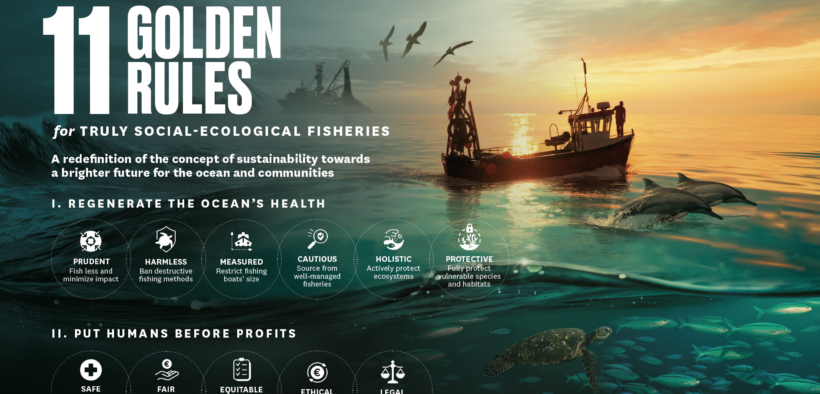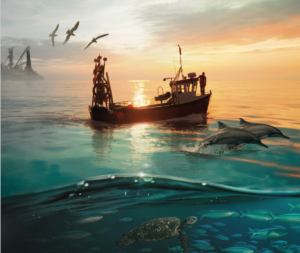The world’s leading ocean specialists are completely rethinking the concept of “sustainability”
Share

One week before Ocean Week from September 30 to October 5 in Brussels, and a few months ahead of the United Nations Ocean Conference in Nice (June 2025), a group of globally recognized experts today publishes the results of an unprecedented scientific effort. They redefine the concept of “sustainable fishing” and propose eleven “golden rules” that radically challenge the current failing notion prevailing in fishery management. These eleven “golden rules” are designed to put an end to the ongoing destruction of the ocean caused by fishing and to ensure an abundant renewal of fish to nourish future generations amid increasing concerns about the state of the oceans.

“Sustainable Fishing”: A Concept Revolutionized by the World’s Leading Ocean Specialists
Their findings, published in the journal “npj Ocean Sustainability,” fundamentally question the current failing definition and propose a visionary approach to ensure the health of the ocean and human well-being.
The Flaws of the Current Model
The current definition of “sustainable fishing” focuses on maintaining fish stocks above a certain threshold. However, scientists argue that this simplistic approach overlooks the devastating impacts of fishing on marine ecosystems and human communities. Current industrial practices lead to species depletion, habitat destruction, and violations of workers’ rights.
The New “Golden Rules”
The experts have developed eleven “golden rules” based on two key principles: minimizing environmental damage and maximizing social benefits. These rules aim to promote sustainable fishing practices, mitigate the effects of climate change, ensure food security, and respect human rights.
For instance, one of the rules advocates for eliminating harmful subsidies that encourage overfishing. Others emphasize the importance of protecting vital habitats, involving local communities in fishery management, and ensuring an equitable distribution of benefits.
Ambition and Realism
The experts emphasize that many of the recommended measures have already proven effective. They believe that most actions can be implemented by 2030, the deadline set by the IPCC and IPBES to avoid catastrophic consequences of climate change and biodiversity collapse.
The Role of Consumers and Supermarkets
Supermarkets, which account for a significant portion of seafood sales, play a crucial role in this transition. They can demand sustainable fishing practices from their suppliers, influence certification labels, and respond to consumer concerns.
The scientists urge policymakers, distributors, and fishery managers to urgently adopt the proposed “golden rules.” The future of the oceans and future generations depends on it.
The 11 Proposed Actions
1: Fish less and manage fisheries for lower impact
2: Eliminate gear and fisheries that generate significant bycatch
3: Set limits on the size of boats and gear
4: Source only from fisheries with good governance, sustainable stocks, and sufficient data to ensure sustainability
5: Proactively integrate ecosystem protection into fishery management
6: Ban the most vulnerable species and areas
7: End fisheries that violate human rights, particularly those that threaten food security and livelihoods in the areas where they operate
8: Create fishery management systems that distribute access and benefits equitably and transparently
9: Apply best practices wherever fishing companies operate
10: Eliminate harmful subsidies for fishing
11: Enforce a zero-tolerance policy for companies engaging in illegal fishing

















